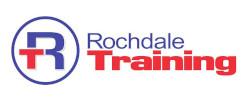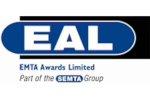This Apprenticeship is a brilliant way to gain new practical and professional skills, on-the-job training, nationally recognised qualifications and earn money at the same time. This Apprenticeship course is also available to those who are employed and want to upskill in the workplace.
Course Overview:
Welding is a way to make high-strength joints between two or more parts. General Welders use high electrical energy to form an arc. Manual dexterity is essential in controlling the arc, which is used to melt metals, allowing them to fuse together to form a structurally sound weld.
Welding is used extensively and in almost every sector of industry with high demand for skilled General Welders in areas such as automotive, marine, transport, general fabrication and construction. General Welders produce items like components for cars; ships; rail vehicles; simple metallic containers; and steelwork for bridges, buildings and gantries. Welding is a safety-critical occupation, and every welder takes responsibility for the quality and accuracy of their work - welding joints must satisfy basic quality standards to ensure products function correctly and are safe.
Skilled, qualified, professionally certified General Welders work anywhere in the world in often harsh conditions, so monetary rewards can be high.
What You Will Learn:
- Be aware of the basic mechanical properties and weldability of welded materials.
- Understand the common arc welding processes, joint types (fillet, lap, butt, etc.) and positions.
- Understand the major components of welding equipment, the essential parameters for welding, terminology, operation and controls for the selected arc welding processes, joint types and welding positions.
- Identify and understand the causes of typical welding defects and how their occurrence can be reduced, for the materials and welding processes selected.
- Understand the functions of welding consumables and the requirements for correct storage handling and application.
- Understand and identify hazards and basic health, safety and quality requirements when welding.
- Know how to interpret and work to a welding procedure specification.
- Know the basics of welding quality documents and reporting systems.
The Training Will Include:
- Face-to-face and/or remote workshops together with online learning
- 1:1 support from a Tutor who will visit your workplace
- Progress reviews are to be completed with your Tutor and line manager
- Development of a work-based portfolio to evidence learning
- End-point assessment (EPA)
- Functional Skills English and/or maths Level 1 and/or Level 2, if required
Entry Requirements:
There are no formal entry requirements.
In order to complete the apprenticeship, you will need English and maths at Level 1 (equivalent to GCSE grade 2-3) and attempt English and/or maths Level 2, but if you don’t have these qualifications don’t let this stop you from undertaking the apprenticeship as we can help you gain the Level 1 requirement and support you in working towards Level 2 during your studies
Duration:
18 months plus 3 months EPA
Professional Membership:
Not relevant for this Standard



















